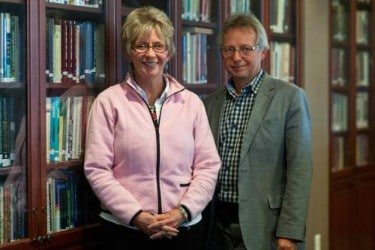
Quotes by authors Terryl and Fiona Givens



“As Latter-day Saints, we know we do not earn heaven; we co-create heaven, and we do so by participating in the celestial relationships that are its essence (and which temple ordinances eternalize).”

“Zion-building is not preparation for heaven. It is heaven, in embryo. The process of sanctifying disciples of Christ, constituting them into a community of love and harmony, does not qualify individuals for heaven; sanctification and celestial relationality are the essence of heaven. Zion, in this conception, is both an ideal and a transitional stage into the salvation toward which all Christians strive.”

“In an 1831 revelation, the Lord told Joseph Smith that most of the world was under sin, ‘except those which I have reserved unto myself, holy men that ye know not of.'”


| The God Who Weeps: How Mormonism Makes Sense of Life


“It is about failing to see the family structure as a divine mode of eternal association that is at the very heart of heaven itself. In sum, the ‘Restoration’ is not about correcting particular doctrines or practices as much as it is about restoring their cosmic context.”

“Berdyaev wrote that ‘one must help others and do good works, not for saving one’s own soul, but for love, for the union of men, for the bringing of their souls together in the kingdom of God. Love for men is a value in itself, the quality of goodness is imminent in it.'”